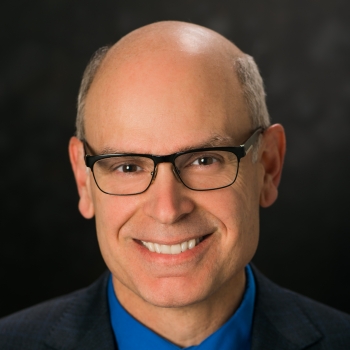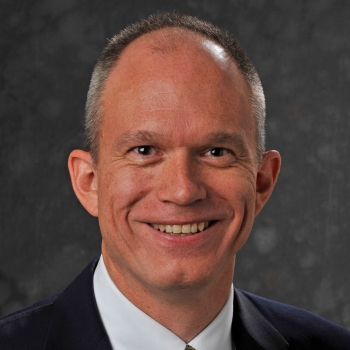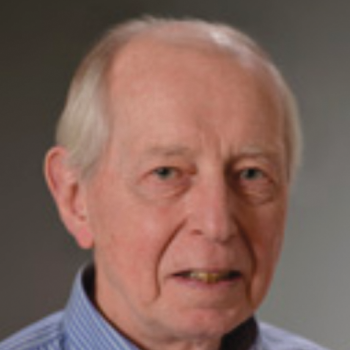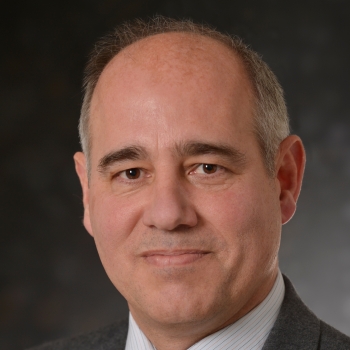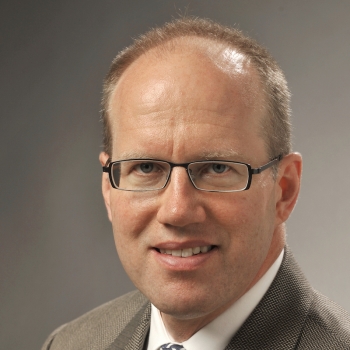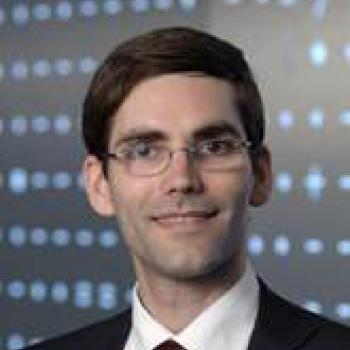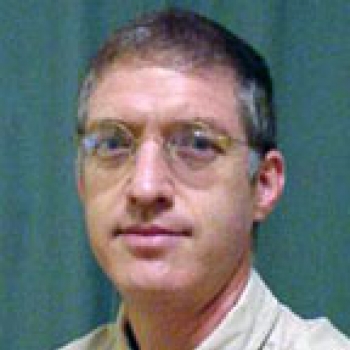MIT staff members are named 2017 IEEE Fellows
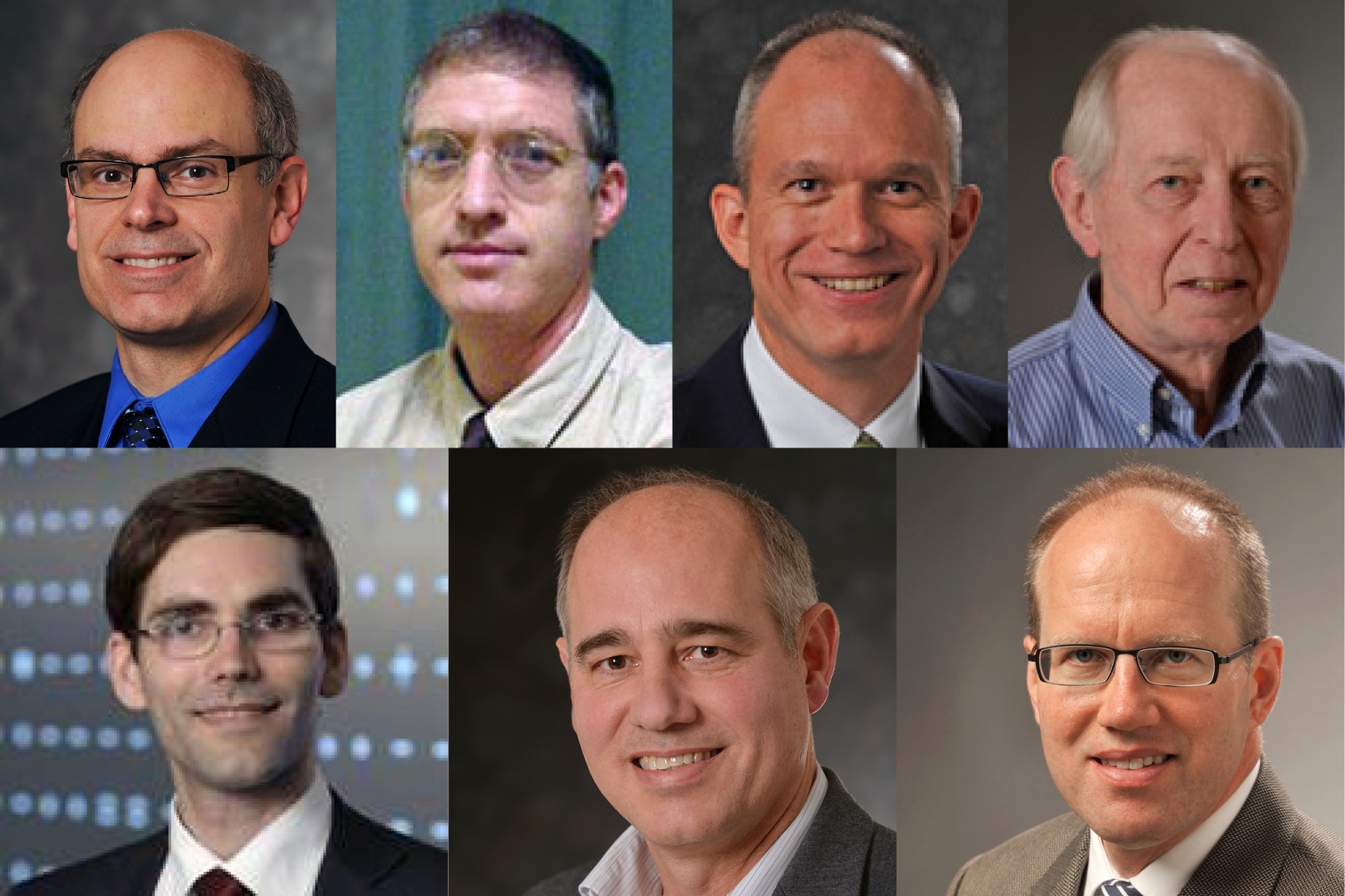
Seven MIT staff members were named 2017 Fellows of the IEEE: Robert Cunningham, Paul Juodawlkis, Daniel Oates, Frank Robey, and Steven Smith, technical staff members at MIT Lincoln Laboratory, as well as MIT Professor Tomás Palacios and visiting lecturer Dov Dori. The Fellows program honors "those who have contributed greatly to the advancement of engineering, science, and technology."
Dr. Cunningham, leader of the Secure Resilient Systems and Technology Group, was chosen for his "leadership in computer security." He is responsible for initiating and managing research and development programs in information assurance and computer and platform security. Since joining the Laboratory in 1988, Dr. Cunningham has been interested in evaluating the performance of security systems. He began his career in the Machine Intelligence Group, working on machine learning and digital image processing. In early 1998, he transferred to the Information Systems Technology Group, where he pursued system security research and development. Most recently, he has been working on protecting systems and data against remote and local attackers, focusing on embedded systems and subsequently on cloud systems.
Dr. Cunningham has served on several national panels and led many national teams. He also served as Lincoln Laboratory's representative to the U.S. Department of Defense's Priority Steering Council on Cyber Security Research and Development; worked on the U.S. Army Cyber Materiel Development Strategy Review Panel; and was named chair of the IEEE Cybersecurity Initiative.
"I'm delighted and honored to have my work recognized by my peers," said Dr. Cunningham. "I'm looking forward to another exciting year of research with my colleagues and new efforts with the IEEE Cybersecurity Initiative."
Dr. Juodawlkis, assistant leader of the Quantum Information and Integrated Nanosystems Group, was honored for his "contributions to optically sampled converters and waveguide amplifiers."
"I'm very happy to receive this recognition with several Lincoln Laboratory colleagues," said Dr. Juodawlkis. "The Laboratory has afforded me the opportunity to collaborate with world-class staff to advance cutting-edge research. I have also received the support to engage with the broader optics and photonics community by publishing work and actively participating in professional organizations like the IEEE Photonics Society."
Currently, Dr. Juodawlkis' work includes developing photonic integrated circuit technology for application to optical communication, laser radar, inertial navigation, and microwave sensing systems. Over the past decade, Dr. Juodawlkis led a team that developed the semiconductor slab-coupled optical waveguide amplifier (SCOWA) and used it to realize watt-class power amplifiers, mode-locked lasers, and low-noise single-frequency lasers demonstrating record performance. Recently, this team has been working to develop electronic-photonic integrated circuits that combine novel SCOWA components, conventional photonic components (e.g., tunable lasers, optical modulators), and complementary metal-oxide-semiconductor electronics.
Dr. Juodawlkis made key contributions to the development of optical sampling techniques for microwave frequency translation and photonic analog-to-digital conversion. He also served as a radar systems engineer on a multisensor airborne test bed program in the Tactical Defense Systems Group at the Laboratory. He has authored or coauthored more than 100 peer-reviewed journal and conference publications.
Members of the IEEE honored Dr. Daniel Oates, staff member in the Quantum Information and Integrated Nanosystems Group, "for contributions to high-temperature superconductors and applications to RF receiver technology."
Dr. Oates' current research interests include microwave-frequency superconducting electronics, specifically applications in receiver front ends to reduce noise figure and interference. Research during his first 11 years at Lincoln Laboratory was in the field of microwave acoustics. He invented and developed temperature-stable surface-acoustic-wave dispersive-delay lines. He also developed surface-acoustic-wave programmable transversal filters in which surface-wave devices were coupled with silicon integrated circuits.
In the field of superconductivity and related areas, Dr. Oates has published 86 papers as author or coauthor, and he holds seven patents. He serves on the Administrative Committee of the IEEE Council on Superconductivity and is an associate editor of the IEEE Transactions on Applied Superconductivity.
"I am deeply honored to receive the award, which is an important milestone in what has been, and continues to be, a very fulfilling career," said Dr. Oates. "I have enjoyed my research and have made many wonderful, accomplished friends throughout my career. I'm proud to be part of this cohort."
Dr. Frank Robey, associate leader of the RF Technology Group, was elected as an IEEE Fellow for "leadership in development of advanced radar systems."
His work at the Laboratory consists of developing and demonstrating innovative RF technologies as solutions to emerging national security needs in radar, electronic warfare, and communications. He has been the lead for multiple fundamental and applied research initiatives, including advanced sensor technology, coherent multiple-input, multiple-output (MIMO) radar, electronic intelligence, and next-generation over-the-horizon radar.
Dr. Robey spent two years on assignment as Deputy Director of the Office of Smart Collection, Intelligence Advanced Research Projects Activity/Office of the Director of National Intelligence, where he managed and oversaw programmatic initiatives to enhance intelligence collection and analysis. Since 2002, he has been a member of the Tri-Services Radar Symposium Program Committee, and he was the local host for the 2005 radar symposium. He has also published more than 30 papers.
"It is a great honor to be selected for recognition as IEEE Fellow," said Dr. Robey. "I owe this award to the collaboration and support of my colleagues and the open technical environment at the Laboratory."
Dr. Steven Smith, senior staff member in the Intelligence and Decision Technologies Group, was honored "for contributions to statistical signal processing and applications to radar and sonar."
Dr. Smith is an expert in radar, sonar, and signal processing who has made pioneering and wide-ranging contributions through his research and technical leadership in estimation theory, resolution limits, and signal processing and optimization on manifolds. He has more than 20 years of experience as an innovative technology leader in statistical data analytics, both theory and practice, and broad leadership experience ranging from first-of-a-kind algorithm development for groundbreaking sensor systems to graph-based intelligence architectures.
Dr. Smith received the SIAM Outstanding Paper Award in 2001 and the IEEE Signal Processing Society Best Paper Award in 2010. He was associate editor of the IEEE Transactions on Signal Processing from 2000 to 2002 and serves on the IEEE Sensor Array and Multichannel and Big Data committees. He has taught signal processing courses at Harvard and MIT and for the IEEE.
"My career contributions recognized by the IEEE were all supported by many people," said Dr. Smith. "I am grateful for the colleagues and research environment I have had here at the Laboratory."
Dr. Tomás Palacios, a professor in the Department of Electrical Engineering and Computer Science at MIT, was honored for "for contributions to gallium nitride electron devices and two-dimensional materials."
He leads the Advanced Semiconductor Materials and Devices Group. He is the founding director of the MIT Center for Graphene Devices and Two-Dimensional (2D) Systems, as well as a recently funded Air Force Office of Scientific Research Multidisciplinary University Research Initiative on flexible 2D electronics.
His research focuses on the combination of new semiconductor materials and device concepts to advance the fields of information technology, biosensors, and energy conversion. His work has been recognized with multiple awards, including the Presidential Early Career Award for Scientists and Engineers, the Defense Advanced Research Projects Agency, Office of Naval Research, and National Science Foundation Young Investigator Awards, the IEEE George Smith Award, and numerous best paper awards at conferences such as the International Electron Devices Meetings, the Device Research Conference, and the International Symposium on Compound Semiconductors.
Prof. Palacios has authored more than 200 contributions on advanced semiconductor devices in international journals and conferences, 5 book chapters, and 20 patents.
Dr. Dov Dori, visiting professor at MIT, was honored "for contributions to model-based systems engineering and document analysis recognition."
He currently lectures for MIT’s Systems Design and Management program. He is also the Harry Lebensfeld Chair in Industrial Engineering and Head of the Enterprise System Modeling Laboratory at the Faculty of Industrial Engineering and Management, Technion, Israel Institute of Technology.
Prof. Dori’s research interests include model-based systems engineering, conceptual modeling of complex systems, systems architecture and design, software and systems engineering, and systems biology. He invented and developed Object-Process Methodology, the emerging ISO 19450 Standard.
He has authored or edited five books and more than 300 journal and conference publications and book chapters. Prof. Dori has also mentored more than 50 graduate students. Among his many editorial duties, Prof. Dori was Associate Editor of IEEE Transaction on Pattern Analysis and Machine Intelligence, and he is currently Associate Editor of Systems Engineering, the International Council on Systems Engineering’s (INCOSE) scholarly journal. He is also a fellow of INCOSE and the International Association for Pattern Recognition.
Established more than 50 years ago, the IEEE is the world's leading professional association for the advancement of technology. According to the IEEE, the number of fellows selected in any one year "does not exceed one-tenth of one percent of the total voting Institute membership."
